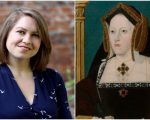
YOUR SEARCH UNCOVERED 618 RESULTS
-
September 2017 Live Chats – 22 and 30 September

-
This week in history 4 – 10 September
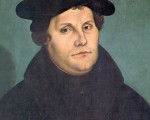
On this day in history…
4th September:
1504 – Birth of Antoine de Noailles, soldier and French diplomat at the English court in Mary I’s reign, at Château de la Fage.
[Read More...]
1539 – William, Duke of Cleves, signed the marriage treaty promising his sister, Anne of Cleves, in marriage to King Henry VIII. The Duke then sent the treaty to England, where it was ratified and concluded by early October.
1550 – Death of Sir Thomas Paston, Gentleman of the Privy Chamber in the reigns of Henry VIII and Edward VI.
1588 – Robert Dudley, Earl of Leicester died at his lodge at Cornbury, near Woodstock in Oxfordshire.
He had been ill for some time with a recurring stomach ailment, and so had decided to travel to Buxton to take the waters, but he died on the way.
1590 – Death of Sir James Croft, Lord Deputy of Ireland, member of Parliament and conspirator. Croft was one of the leaders of Wyatt’s Rebellion in 1554, but although he was sentenced to death for treason, he was eventually released and pardoned. He served Elizabeth I as Comptroller of the Household, but was imprisoned briefly in her reign for negotiating with the Duke of Parma without permission. Croft was buried at Westminster Abbey, in the Chapel of St John the Evangelist. -
This week in history 7 – 13 August

On this day in Tudor history…
7th August:
1485 – Henry Tudor (future Henry VII) dropped anchor at Mill Bay, Milford Haven, Wales. He had returned from exile to claim the crown of England. Click here to read more.
[Read More...]
1514 – Peace treaty signed between England and France, arranging the marriage of the widowed fifty-two-year-old Louis XII of France and the eighteen-year-old Princess Mary Tudor, sister of Henry VIII.
1541 – Death of Sir Richard Weston, courtier and father of Sir Francis Weston who was executed in 1536 for alleged adultery with Queen Anne Boleyn. Richard served Henry VII as Groom of the Chamber and Henry VIII as an Esquire of the Body, Governor of Guernsey and treasurer of Calais. He was buried in Holy Trinity Church, Guildford.
1549 – The five-year-old Mary, Queen of Scots set sail from Dumbarton, Scotland, for France. A marriage had been agreed between Mary and Francis, the Dauphin, so Mary was going to be brought up at the French court. Mary arrived at Saint-Pol-de-Léon, near Roscoff in Brittany, just over a week later.
1574 – Sir Robert Dudley, mariner, cartographer and landowner, was born on this day in 1574 at Sheen House, Richmond. He was the illegitimate son of Robert Dudley, Earl of Leicester and favourite of Elizabeth I, and his lover Lady Douglas Sheffield, daughter of William Howard, 1st Baron Howard of Effingham, and widow of John Sheffield, 2nd Baron Sheffield.
1600 – Burial of Sir Thomas Lucy in the parish church at Charlecote, Warwickshire. Lucy was a magistrate and member of Parliament, but is best known for his links with William Shakespeare. Tradition has it that Shakespeare wrote a satirical ballad about Lucy, or he made a caricature of him in the character of Judge Shallow, as revenge after he was judged too harshly for poaching on Lucy’s estate, Charlecote Park. There is no evidence to support this story.
1613 – Death of Sir Thomas Fleming, Solicitor-General to Elizabeth I and James I, at Stoneham Park. He also served James I as Chief Justice of the King’s Bench. He was buried at North Stoneham Church. -
Members’ book recommendations
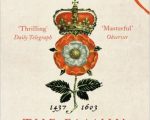
Thank you so much to those of you who completed our recent survey about Tudor books.
We already have recommended reading lists for Tudor monarchs and various Tudor topics – see the Recommended Reading category, but I thought it would be good to make a list of books that Tudor Society members would recommend, and here it is. Please do leave a comment if you’d like to recommend some books and I can then add them to the list – thank you!
[Read More...] -
Burial in Tudor times – Part 2: Embalming and heart and entrails burial

A lovely subject, I know! Yes, in today’s Claire Chats talk I’m discussing how the remains of the wealthier classes and royals were prepared for burial. I discuss the different types of embalming before moving on to the practice of heart and entrails burial. I also look at what we know from primary sources documents about how various Tudor royals were prepared for burial. You’ll find all the links and further reading recommendations below the video.
[Read More...] -
Happy Birthday Henry VIII!
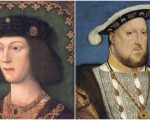
To celebrate the anniversary of Henry VIII’s birth on this day in history, 28th June 1491, I thought I’d give you some links to some talks, articles and resources on this iconic king. Happy 526th birthday to King Henry VIII.
[Read More...] -
This week in history 26 June – 2 July
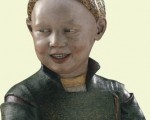
On this day in history…
26th June:
1513 – Burial of Sir Edmund Carew, landowner, administrator and soldier, in the church of St Nicholas, Calais, after he was shot dead during the siege of Thérouanne in Artois.
[Read More...]
1535 – A new commission of oyer and terminer was appointed for the county of Middlesex. The commission ordered the Sheriff of Middlesex to gather the Grand Jury on the 28th June at Westminster Hall. This was to try Sir Thomas More who, according to the indictment, had been “traitorously attempting to deprive the King of his title of Supreme Head of the Church”.
1568 – Death of Thomas Young, Archbishop of York, at Sheffield. He was buried in York Minster.
1576 – Death of Edward Dering, scholar, Church of England clergyman and controversial evangelical preacher, from tuberculosis at Thobie Priory in Essex. A collection of his works, which included sermons, lectures, prayers and letters, was first published in 1590.
1596 – Burial of Sir John Wingfield in the cathedral at Cadiz, Spain. He was shot in the head in the attack on Cadiz on 21st June. At Wingfield’s funeral, “the generalls threw their handkerchiefs wet from their eyes into the grave” (Stow, 775) and the poet John Donne, who was a member of the expedition, composed an epigram as a tribute to Wingfield: “Farther then Wingefield, no man dares to go”. -
This week in history 19 – 25 June
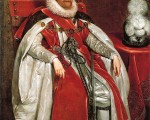
On this day in history…
19th June:
1502 – The Treaty of Antwerp was signed between Henry VII and Emperor Maximilian I at Antwerp. Henry VII promised a payment of £10,000 for aid against the Turks in exchange for Maximilian’s promise to banish Yorkist rebels from his territories.
[Read More...]
1535 – Sebastian Newdigate, William Exmew and Humphrey Middlemore, monks of the Carthusian Order of London Charterhouse, were hanged, drawn and quartered at Tyburn. Their crime: refusing to accept King Henry VIII as the Supreme Head of the Church. Click here for more information on the Carthusian Martyrs.
1566 – Birth of James VI and I, King of Scotland, England and Ireland, at Edinburgh Castle in Scotland. James was the only son of Mary, Queen of Scots, and Henry Stuart (Stewart), Lord Darnley. James became James VI of Scotland when his mother was forced to abdicate 24th July 1567, and he became James I of England on the death of Elizabeth I, 24th March 1603.
1573 – Execution of Thomas Woodhouse, Jesuit priest and martyr, at Tyburn. He was the first priest to be executed in Elizabeth I’s reign. Woodhouse was beatified in December 1886 by Pope Leo XIII.
1616 – Death of Henry Robinson, Bishop of Carlisle, at his home, Rose Castle in Carlisle. He died of the plague. Robinson was buried in Carlisle Cathedral. -
This week in history 29 May – 4 June
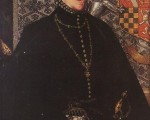
On this day in history…
29th May:
1500 – Death of Thomas Rotherham, Archbishop of York, at Cawood Castle, Yorkshire. He was buried in York Minster.
[Read More...]
1533 – Anne Boleyn’s coronation pageantry began with a river procession.
1542 – Death of Sir Thomas Neville, lawyer and Speaker of the House of Commons, county commissioner in Kent, Surrey, Sussex, and Middlesex, and Knight of St John. He was the fifth son of George Neville, 2nd Baron Bergavenny. Neville was buried in Mereworth church in Kent.
1546 – Murder of David Beaton, Cardinal and Archbishop of St Andrews, at the castle in St Andrews. He was killed by a small group of Fife lairds. One motive was their outrage at the recent trial and execution of Protestant preacher George Wishart at St Andrews.
1555 – Birth of George Carew, Earl of Totnes, soldier, administrator and Lord President of Munster. He was a member of James I’s Privy Council and his council of war. He was also a friend of Sir Walter Ralegh, and pleaded unsuccessfully for his life.
1593 – Hanging of religious controversialist John Penry at St Thomas-a-Watering in Surrey. Penry had been found guilty of “publishing scandalous writings against the church” after having been linked to the “Marprelate religious tracts.”
1623 – Burial of Francis Anthony, alchemist and physician, in the church of St Bartholomew-the-Great. -
A Tudor gem that made me dance by Janet Wertman

-
This week in history 1 – 7 May
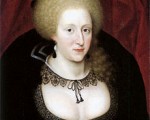
On this day in history…
1st May:
[Read More...]
1461 – Execution of James Butler, 1st Earl of Wiltshire and 5th Earl of Ormond, at Newcastle after being captured by the Yorkists.
1508 – Birth of Sir William Cavendish, administrator. Cavendish was one of Cromwell’s main agents in the dissolution of the monasteries and was appointed Treasurer of the Chamber in February 1546.
1517 – The Evil May Day Riot. A mob of young apprentices and labourers gathered at St Paul’s and then went on a rampage through the streets of London, causing damage to property and hurting those who stood in their way. -
Maypoles and rioting
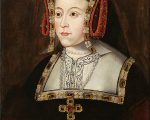
1st May is May Day, a day to celebrate the start of summer and you can read more about how it was celebrated and see a video of Maypole dancing in my article “May Day”.
However, it wasn’t always a day of fun and dancing, in 1517 there was a riot.
[Read More...] -
This week in history 24 – 30 April
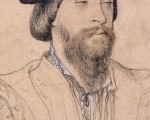
On this day in history…
24th April:
1536 – Commissions of oyer and terminer set up by Thomas Audley, Lord Chancellor. These particular commissions were for offences committed in the counties of Middlesex and Kent, and covered the crimes of misprision, treason, rebellion, felonies, murder, homicide, rioting, plotting, insurrection, extortion, oppression, contempt, concealment, ignorance, negligence, falsities, deception, conspiracy and being an accessory to these crimes. It is not known whether they were set up specifically to try the men who would later be charged with committing adultery with Queen Anne Boleyn.
[Read More...]
1545 – Baptism of Henry Wriothesley, 2nd Earl of Southampton, at St Andrews, Holborn. He was the son of Thomas Wriothesley, 1st Earl of Southampton and 1st Baron Wriothesley, Henry VIII’s Lord Chancellor.
1549 – Death of Ralph Neville, 4th Earl of Westmorland, English peer, soldier and Privy Councillor. He was buried at Staindrop in County Durham. Neville was one of the peers who sat in judgement on Anne Boleyn in May 1536 and served Henry VIII as a soldier in the North of England and borders, and Edward VI in Scotland.
1551 – Execution of Dutchman George van Parris, surgeon and religious radical at Smithfield. He was burned at the stake for Arianism (denying the divinity of Christ). -
21 April 1509 – The accession of Henry VIII
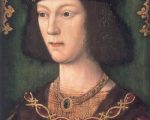
On the 21st April 1509, following the death of his father, Henry VII, seventeen-year-old Henry VIII became king. His accession was greeted with joy. The Spanish envoy Gutierre Gómez de Fuensalida wrote that “The people are very happy and few tears are being shed for Henry VII. Instead, people are as joyful as if they had been released from prison” and William, Lord Mountjoy, wrote to Desiderius Erasmus, the renowned humanist and scholar, saying:
[Read More...] -
This week in history 10 – 16 April
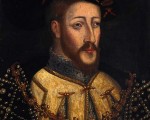
On this day, 10th April…
1512 – James V, King of Scotland, was born at Linlithgow Palace. He was the fourth child of James IV and Margaret Tudor, sister of Henry VIII. He was the only one of James and Margaret’s children to survive childhood, and so inherited the crown of Scotland when his father was killed at the Battle of Flodden, 9th September 1513.
[Read More...]
1550 – Edward Seymour, Duke of Somerset, was re-admitted into Edward VI’s council.
1559 – Death of Sir Rice Mansel, soldier and administrator, at his home in Clerkenwell. He served Henry VIII as Vice-Admiral in 1542, in France and Scotland, and in 1544 as Knight-Marshal. He was also Chamberlain of Chester.
1585 – Death of Pope Gregory XIII, the Pope known for his introduction of the Gregorian Calendar, in Rome. He was succeeded by Pope Sixtus V. -
This week in history 3 – 9 April

On this day in history…
3rd April:
1538 – Death of Elizabeth Boleyn, Countess of Wiltshire and Ormond, wife of Thomas Boleyn and mother of Anne Boleyn. Click here to read more.
[Read More...]
1559 – The second session of Parliament, in Elizabeth I’s reign, met after the Easter break. Its purpose was to obtain parliamentary sanction for royal supremacy and Protestant settlement.
1559 – The Peace of Cateau-Cambrésis, ending the Italian Wars, was signed between Henry II and Philip II of Spain. Click here to read more.
1578 – Burial of Lady Margaret Douglas, Countess of Lennox and daughter of Margaret Tudor and Archibald Douglas, 6th Earl of Angus. She was buried in Henry VII’s Chapel of Westminster Abbey. -
This week in history 27 March – 2 April

On this day in history…
27th March:
1489 – The Treaty of Medina del Campo was signed between England and Spain. One part of it was the arrangement of the marriage between Arthur, Prince of Wales, and Catherine (or Catalina) of Aragon. It was signed by Spain on this day and ratified in 1490 by Henry VII.
[Read More...]
1539 – Burial of George Talbot, 4th Earl of Shrewsbury, at St Peter’s Church, Sheffield. He is known for his loyalty to the King during the Pilgrimage of Grace uprisings, which was seen as crucial to the failure of the rebellion. His offices under Henry VIII included Chamberlain of the Exchequer, Lieutenant of the Vanguard in the 1513 French campaign and Lieutenant-General in 1522 in the Scottish borders.
1555 – Burning of William Hunter, Protestant martyr. Nineteen-year-old Hunter got into trouble when he was found reading the Bible in Brentwood Chapel. -
Thomas Cranmer, Archbishop of Canterbury
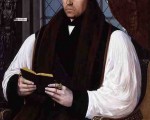
Thomas Cranmer, Archbishop of Canterbury, was born on 2nd July 1489 in Aslockton, Nottinghamshire, England. He was the son of Thomas Cranmer and his wife Agnes (nee Hatfield). He had an older brother, John, a younger brother, Edmund, and a sister called Alice.
Cranmer’s father died in 1501. His mother sent Cranmer to grammar school and then in 1503, when he was fourteen years old, he was sent to Jesus College, Cambridge, where he studied for a Bachelor of Arts degree. His degree, which comprised logic, philosophy and classical literature, took him eight years to complete and he followed it with a Masters degree, studying the humanists. After obtaining his Masters degree in 1515, Cranmer he was elected to a Fellowship of Jesus College. Following his marriage to his first wife, Joan, he was forced to relinquish his fellowship and became a reader at Buckingham College. Sadly, Joan died in childbirth and the child also died.
[Read More...] -
This week in history 20 – 26 March

On this day in history…
20th March
1469 – Birth of Cecily, Viscountess Welles and princess, also known as Cecily of York, third daughter of Edward IV and Elizabeth Woodville. She was born at Westminster Palace. A marriage alliance with Scotland was made in 1473 promising Cecily to James, the infant son of James III, but Cecily was still unmarried at her father’s death in 1483. Her uncle, Richard III, arranged Cecily’s marriage to Ralph Scrope of Upsall, but Henry VII dissolved the marriage in 1486 and she married John Welles, Viscount Welles, the King’s half-uncle. After Welles’ death in 1499, Cecily went on to marry Thomas Kyme of Friskney. Cecily died in 1507.
[Read More...]
1544 – Baptism of Cuthbert Mayne, Roman Catholic priest and martyr. He was hanged, drawn and quartered at Launceston on 30th November 1577 after being charged with traitorously getting hold of a papal bull and publishing it at Golden Manor, defending the authority of the Pope, purchasing a number of Agnus Dei and giving them to people, and celebrating the Catholic mass.
1549 – Thomas Seymour, 1st Baron of Sudeley and Lord High Admiral, husband of the late Dowager Queen Catherine Parr and brother of Queen Jane Seymour and Protector Somerset, was executed after being charged with thirty-three counts of treason.
1555 – Burial of John Russell, Earl of Bedford, courtier and magnate, at Chenies, following his death 14th March. It was a lavish funeral with three hundred horses, all in black trappings. -
Tudor Nobility
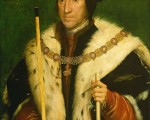
This list includes the English royal family and nobility of the Tudor period, along with how they would be addressed. Do let me know if I have missed any by commenting below.
Rank
Here they are are order of importance:
Monarch and royal family
[Read More...]
Duke
Marquis
Earl
Viscount
Baron
Knight -
This week in history 20 – 26 February
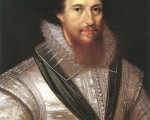
On this day in history…
20th February
1516 – Baptism of Princess Mary, the future Mary I, in the Church of the Observant Friars at Greenwich. The princess was carried to the font by the Countess of Surrey, and her godparents were Catherine Courtenay, Countess of Devon and daughter of Edward IV; Margaret Pole, Countess of Salisbury and daughter of George, Duke of Clarence; the Duchess of Norfolk and Cardinal Thomas Wolsey. Click here to read more.
[Read More...]
1523 – Hanging of Agnes Hungerford, Lady Hungerford, at Tyburn. Agnes was hanged, with her servant William Mathewe, after they were found guilty of murdering Agnes’s first husband, John Cotell. It was said that Agnes arranged for her servants, William Mathewe and William Ignes, to strangle Cotell in 1518. Mathewe and Ignes were found guilty of murder ‘by the procurement and abetting of Agnes Hungerford’, and Agnes was found guilty of inciting and abetting the murder. Ignes was hanged at a later date. Agnes was buried at Grey Friars, London.
1547 – Edward VI was crowned King at Westminster Abbey by Archbishop Thomas Cranmer. Edward VI was the first monarch to be anointed as Supreme Head of the English Church. Click here to read more about his coronation. -
Katherine of Valois: Lancastrian Queen, Tudor Wife
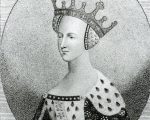
Today we are hosting Conor Byrne, “Tudor Life” magazine regular contributor, historian and author, as part of his book tour for his latest book Queenship in England 1308-1485: Gender and Power in the Late Middle Ages. MadeGlobal Publishing is offering a paperback copy of Conor’s book to one lucky commenter. All you have to do is leave a comment below saying which 14th or 15th-century queen you’d like to know more about and why. Leave your comment before midnight Tuesday 21st February 2017. One commenter will be picked at random and contacted for his/her address.
On 3 January 1437, Katherine of Valois, widow of Henry V, died at the age of thirty-five. The former queen was buried at Westminster Abbey. Five months later, the life of another former queen of England ended. Joan of Navarre, Katherine’s immediate predecessor, died at the age of sixty-six or sixty-seven and was buried at Canterbury Cathedral. The queenships of Joan and Katherine reveal the opportunities for triumph and tribulation that the office brought, as well as showcasing the variety of roles that were associated with it, including mother, intercessor, patron and lord. Their queenships also reveal the strikingly different political and diplomatic contexts, depending on circumstances, in which the occupant could attempt to fulfil her roles, and how these contexts affected her ability to succeed in the role of queen.
[Read More...] -
This week in history 13 – 19 February
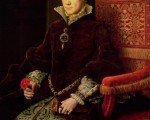
On this day in history…
13th February:
1542 – Catherine Howard, fifth wife of Henry VIII, and Lady Jane Rochford were executed at the Tower of London. They had been found guilty of treason by Act of Attainder. They were both buried in the Chapel of St Peter ad Vincula at the Tower of London. Click here to read more.
[Read More...]
1564 – Baptism of John Harvey, astrologer and physician, at Saffron Walden in Essex. Harvey was the third son of John Harvey, farmer and rope-maker, and his wife, Alice. His published works included “An Astrologicall Addition” (1583), a series of almanacs and “A Discoursive Probleme Concerning Prophesies” (1588).
1579 – Death of John Fowler, the English Catholic printer and publisher, in Namur, during his exile in the reign of Elizabeth I. He was buried there in the church of St John the Evangelist. He is known as one of the most important English Catholic publishers of the 1560s and 70s. -
This week in history 30 January – 5 February
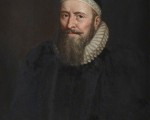
On this day in history, 30th January:
1520 – Birth of Sir William More, member of Parliament, Protestant and son of Sir Christopher More, a powerful administrator in Henry VII’s reign. More served Elizabeth I as Constable of Farnham Castle, Treasurer of the Lottery, Commissioner for Ecclesiastical Causes, Collector of the Loan, Chamberlain of the Exchequer, Master of Swans and Deputy Custos Rotulorum. He was also a commissioner on various commissions of oyer and terminer during her reign.
[Read More...]
1531 – Death of Sir Robert Brudenell, Judge. He served Henry VII as King’s Serjeant and Henry VIII as Chief Justice of the Common Pleas. He was buried at Deene church, Northamptonshire.
1554 – Rebel Thomas Wyatt the Younger and his men besieged Cooling Castle, owned by George Brooke, 9th Baron Cobham. Cobham claimed that he had fought valiantly against the rebels for seven hours before surrendering to them, but his biographer points out that his resistance was most probably a “pretence”.
1593 – Ippolito Aldobrandini was elected as Pope Clement VIII.
1606 – Execution of Robert Winter and three of his fellow conspirators, at St Paul’s. He was hanged, drawn and quartered for his part in the Gunpowder Plot. His brother, Thomas, was executed the next day. -
Ten of the Best Henry VIII Locations to Visit with Children in 2017 and a Book Giveaway!

A big welcome to historian Amy Licence who is joining us today to kick off her book tour for her children’s book All About Henry VIII. It’s a wonderful book, as are the others in the series, and you can enter the giveaway to win a copy of this book by leaving a comment before midnight on 27th January 2017. Simply comment below this post saying which historical place linked to Henry VIII you’d like to visit and why. One comment will be picked at random and the winner contacted.
[Read More...] -
This week in history 26 December – 1 January
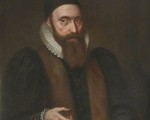
26th December:
526 – Birth of Rose Throckmorton (née Lok, other married name: Hickman), Protestant and businesswoman, in London. She was the third child of Sir William Lok, a mercer who had also served Henry VIII as a gentleman usher. Rose was married twice: to merchant Anthony Hickman and to Simon Throckmorton of Brampton.
[Read More...]
1545 – Death of Sir George Bowes, soldier, rebel and Captain of Norham Castle. He was buried at Alnwick. Bowes was a member of the rebel army during the 1536 Pilgrimage of Grace, but the patronage of his uncle, Sir Robert Bowes, protected him. He fought in the 1542 Anglo-Scottish War and in the 1544 expedition. He was granted the Barony of Coldingham as a reward for seizing Coldingham Priory on November 1544, but was then taken prisoner in January 1545 and lost the barony.
1546 – Henry VIII made some changes to his will, a document which had been prepared two years earlier. These changes were made to ensure successful transfer of royal authority to his son, the future Edward VI, and to prepare for Edward reigning during his minority. -
This week in history 12-18 December
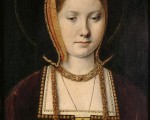
12 December:
1546 – Henry Howard, Earl of Surrey was led through the streets of London from Ely Place, where he had been held since the 2nd December, to the Tower of London. There, he was joined by his father, Thomas Howard, 3rd Duke of Norfolk, who was taken to the Tower by barge along the Thames.
[Read More...]
1574 – Birth of Anne of Denmark, Queen of England, Scotland, and Ireland as consort of James I, at Skanderborg Castle, Jutland, Denmark. Anne was the second daughter of Frederick II, King of Denmark and Norway, and his wife, Sophia. She married James I, when he was James VI of Scotland, by proxy on 20th August 1589, and in a proper church ceremony on 23rd November 1589. The couple’s children included the future Charles I and Elizabeth Stuart, Queen of Bohemia. Anne died on 2nd March 1619 of consumption and dropsy, and was buried in Henry VII’s Chapel, Westminster Abbey.
1595 – Death of Sir Roger Williams, Protestant Welsh soldier and author, from a fever with his patron, Robert Devereux, Earl of Essex, at his side. He was buried at St Paul’s Cathedral. William served as a soldier in the Low Countries and France, and was second in command to Essex of the cavalry gathered at Tilbury in 1588. He wrote the 1590 “A Briefe Discourse of Warre”. -
This week in history 28 November – 4 December
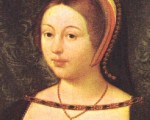
28 November:
1489 – Birth of Margaret Tudor, Queen of Scotland and consort of James IV, at Westminster Palace. Margaret was the eldest daughter of Henry VII and his wife, Elizabeth of York, and the sister of Henry VII. She spent her childhood at Sheen and at Eltham Palace, but was sent to Scotland at the age of thirteen to marry James IV.
[Read More...]
1499 – Execution of Edward Plantagenet, styled Earl of Warwick, on Tower Hill. Edward was the son of George, Duke of Clarence, brother of Edward IV and Richard III, and so was a potential claimant to the throne. He was imprisoned in the Tower of London after Henry VII’s accession, and was executed for treason after the pretender Perkin Warbeck had allegedly plotted to free himself and Edward. He was buried at Bisham Abbey.
1557 – Death of Sir Robert Rochester, administrator. He was buried at the Charterhouse at Sheen. Rochester served Mary I as Comptroller of the Royal Household, Privy Councillor, Chancellor of the Duchy of Lancaster, Keeper of the Privy Seal and a member of Parliament. -
This week in history 7-13 November
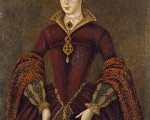
On this day in history events for 7th – 13th November:
7 November:
1485 – Richard III and his supporters were attainted at Henry VII’s first Parliament. Click here to read more.
[Read More...]
1541 – Archbishop Thomas Cranmer and the Duke of Norfolk went to Hampton Court Palace to interrogate Queen Catherine Howard, and to arrange that she should be confined to her chambers there. Click here to read more.
1557 – Death of Sir John Arundell of Lanherne. He was buried at St Mawgan Church. Arundell served Henry VIII as Sheriff of Cornwall and Commander of troops against the rebels during the Pilgrimage of Grace. He also served in France in 1544. During Edward VI’s reign, in 1549, he was imprisoned after John, Baron Russell, accused him of refusing to raise troops and of ordering the mass to be performed. He was released in June 1552.
1565 – Death of Sir Edward Warner, soldier, member of Parliament and Lieutenant of the Tower of London during the reigns of Edward VI and Elizabeth I. He was the gaoler of Katherine Seymour (née Grey), Countess of Hertford, who had been imprisoned for secretly marrying Edward Seymour, Earl of Hertford. Warner died in Norfolk and was buried at Little Plumstead Church in the county.
1568 – Baptism of Dunstan Gale, poet and author of “Pyramus and Thisbe”, at St Giles Cripplegate, London.
1581 – Death of Richard Davies, scholar and Bishop of St David’s, in Abergwili, Carmarthenshire, in the bishop’s palace. He was a friend of Matthew Parker, Archbishop of Canterbury, and undertook translations of parts of the Bible.
1603 – Burial of Robert Allot, literary compiler, bookseller, poet and editor of the 1599 “Wits Theater” and the 1600 “Englands Parnassus”, at St Ann Blackfriars. -
This week in history 31 October – 6 November
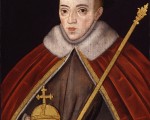
31 October:
1494 – Henry VII’s son, Henry (the future Henry VIII), was created Duke of York.
[Read More...]
1517 – Martin Luther wrote to Albert, Archbishop of Mainz, and the Bishop of Brandenburg protesting against the sale of indulgences and sending them a copy of The Ninety-Five Theses (proper title: Disputation of Martin Luther on the Power and Efficacy of Indulgences).
According to Philipp Melancthon, “Luther, burning with passion and just devoutness, posted the Ninety-Five Theses at the Castle Church in Wittenberg, Germany at All Saints Eve, October 31”, rather than sending them in a letter, but no other contemporary source supports this.
